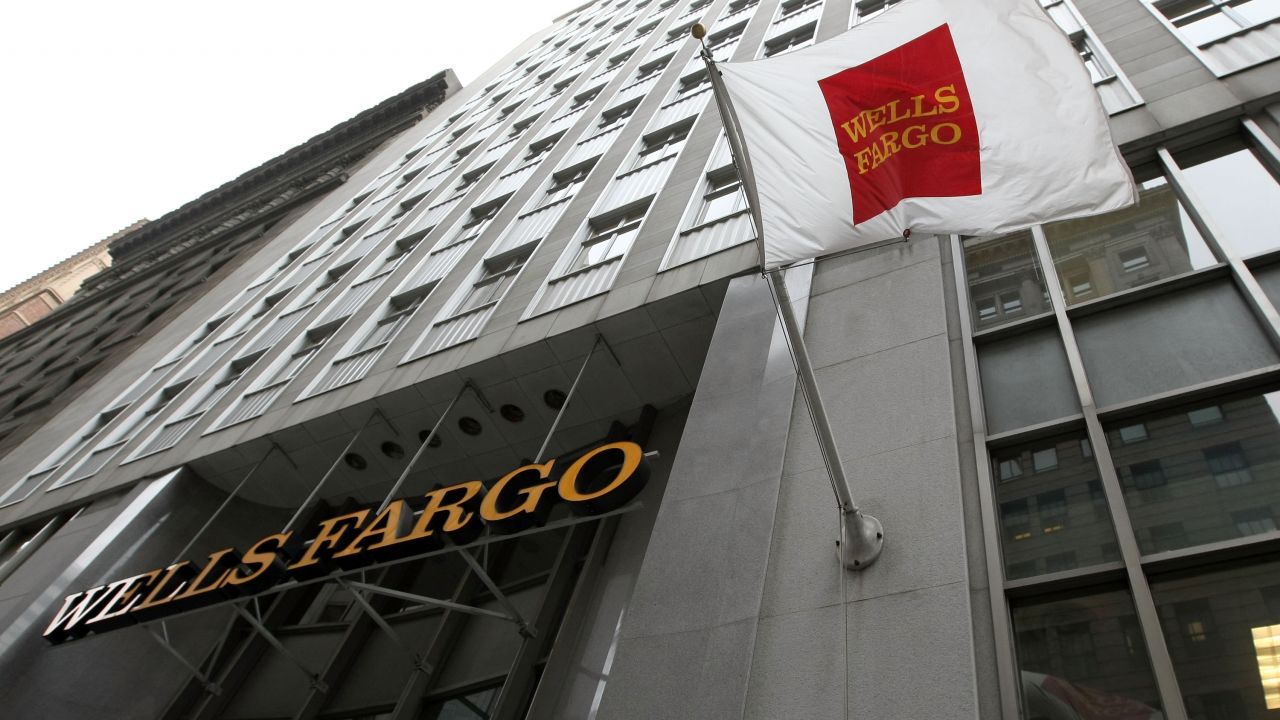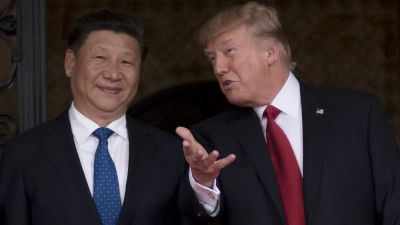
The elevation of Wells Fargo’s fraudulent scheme into a high-profile national scandal didn’t happen by accident; a growing national coalition called the Committee for Better Banks, or CBB, spread the word — and then ratcheted up the pressure. (Photo by Justin Sullivan/Getty Images)
This post originally appeared at The Nation.
Back in 2008, the banks launched their bid to change Javier Sarmiento’s spending habits. A resident of Southern California’s San Fernando Valley, Sarmiento went out one day to collect his mail and found wedged among the letters an unmarked envelope. It contained two things: a shiny new credit card and a lengthy pamphlet from Wells Fargo urging him to use it.
Sarmiento says he had no need for the card and promptly asked Wells Fargo to stop sending him what he now refers to as “propaganda.” But the envelopes kept coming. Every few months, Wells Fargo or Bank of America or another enormous corporation would send a bulky letter begging him to get a credit card and open an account. But Sarmiento refused to comply. He didn’t want to get into the habit of spending money he didn’t have.
Then, in 2010, as the Great Recession continued its grip on the American economy, Sarmiento lost his job as a security camera installation specialist, a job he’d had for 15 years. The money in his bank account dwindled. Reluctantly, he opened one of those envelopes and activated a Wells Fargo credit card. “Money was tight,” he says. “I used the card to get by.”
At first, things were fine: He still had enough cash on hand to make his payments, and the interest rate on the card started at 3 percent. Then he missed a payment. He says he was hit with a $35 late fee and saw his interest rate soar by 5 percentage points.
From there, Sarmiento says, he was sucked into whirlpool of debt, trying to make up for late payments while his interest rate climbed ever higher, eventually reaching 21 percent. When he talked to Wells Fargo representatives about his troubles, they’d try to convince him to open new accounts. “They just want to squeeze whatever they can out of you,” he says. “It was unbelievable.”
Sarmiento’s story is one vantage point from which to view the predatory banking crisis that has trapped an untold number of Americans in recent years. It illuminates the hard-edge tactics — purveying unwanted credit cards, pressuring customers to open new accounts, punitive interest-rate policies — that big banks deploy to rake in profits. Such tactics have now come under scrutiny nationwide. Last fall, controversy engulfed Wells Fargo as the public learned about the company’s practice of opening fraudulent accounts without customer consent. The bank’s imposition of stringent sales goals on its employees, whom managers often pressured to sell 15 or more new products a day, led to the creation of as many as 2 million phony bank and credit-card accounts between 2005 and 2016.
In September, Wells Fargo agreed to pay a $100 million fine to the Consumer Financial Protection Bureau, whose enforcement action against the bank was the largest in the CFPB’s history. Congress, meanwhile, held heated hearings on Wells Fargo’s duplicitous behavior. In one now-viral moment, Sen. Elizabeth Warren (D-MA) interrogated the bank’s then-CEO, John Stumpf, and told him bluntly that he should face investigation. “You should resign,” Warren said. “You should give back the money that you took while this scam was going on. And you should be criminally investigated by both the Department of Justice and the Securities and Exchange Commission.”
A few weeks later, Stumpf resigned in disgrace.
As with the toppling of any Goliath, the elevation of Wells Fargo’s fraudulent scheme into a high-profile national scandal didn’t happen by accident. Rather, a growing national coalition called the Committee for Better Banks, or CBB, spread the word — and then ratcheted up the pressure.
Since 2013, at least, the CBB has labored assiduously to turn bank workers and consumers into a force capable of combating Wall Street’s predatory practices. A project of the Communications Workers of America (CWA) and numerous community organizations, the group was born from a recognition that front-line bank workers — tellers, personal bankers, and other branch-level employees — have an enormous potential to change the consumer-banking industry in this country. As the people who deal with customers directly, these workers can see and sympathize with the real-life impact of abusive lending and retail tactics. Moreover, as people who are themselves exploited by the banks — while Stumpf made as much as $19.3 million a year during his time as CEO, bank tellers earn a median wage of $12.44 an hour, according to the National Employment Law Project — they and their customers have a common cause.
“The US banking sector is very powerful, and it’s very unified,” says Teresa Casertano, a global-organizing coordinator with the CWA. Combating that power requires “an industry-wide approach that builds committees of workers and community groups and consumer-advocacy groups, who all have reasons to want banks to adopt better practices.”
In the service of this vision, the CBB has organized protests, released reports, crashed shareholder meetings, lobbied legislators and organized in workplaces and communities across the country. And since the fall of 2013, it has been particularly outspoken in its denunciation of the sort of cutthroat sales strategies that caused the Wells Fargo debacle in the first place.
Consider the story of Kilian Colin. He was a Wells Fargo banker from 2013 to 2016 and witnessed its toxic culture firsthand. He says employees at his San Diego branch were told they had to sell as many as 20 products a day, whether new credit cards, checking and saving accounts, overdraft protections or small loans. If workers didn’t meet these quotas, management could, and sometimes would, fire them, Colin says.
“The quotas that the company set were almost impossible to reach,” Colin explains. The bank essentially “forced” employees to choose between opening fraudulent accounts or getting kicked to the curb, he adds. “These are people with families and kids and rent.”
Colin says he reported fraudulent activity to his superiors on a number of occasions, but nothing ever came of it. The intense sales expectations continued unabated. Eventually, he got fed up and, in late 2014, started volunteering with the CBB after learning about it on Facebook.
In April 2015, he says, he attended a CBB action in Minneapolis at which dozens of workers and activists rallied outside of a local Wells Fargo branch, blasting jeremiads over a loudspeaker and disrupting business as usual. A few months later, he attended a similar protest in Los Angeles, during which organizers delivered a petition to both Wells Fargo and Bank of America calling for an end to sales goals and better treatment and pay for workers.
Colin also took part in CBB’s crucial visit to Washington, DC, last June, when the office of Rep. Keith Ellison of Minnesota organized an ad hoc hearing during which CBB-affiliated bank employees shared their stories of anxiety-ridden working conditions and managerial misconduct. After that hearing, CBB activists fanned out in small groups across Washington and lobbied high-profile politicians, including Elizabeth Warren, Robert Menendez, Sherrod Brown and other members of the Senate Banking Committee. They also met with representatives of the CFPB. Their plea was simple: Take action against the harmful practices of the big banks, especially Wells Fargo.
“When we act together,” Colin says, “we are powerful.”
The lobbying, publicizing, petitioning and agitating were powerful indeed, and generated — to use the language of bankers — ample returns. Less than three months after the CBB’s visit to the Beltway, on Sept. 8, the CFPB brought its aggressive enforcement action against Wells Fargo. Many of the senators who’d met directly with the CBB called for and convened hearings on the fraud, which led to Stumpf’s very public dressing-down. Blasted from the congressional bully pulpit and lambasted in the press, Wells Fargo ultimately announced that it would end its retail-business sales goals altogether.
“Well before the Wells Fargo scandal became national news, the Committee for Better Banks and the Communications Workers of America helped expose the bank’s fraud and the harm it caused to customers and employees,” said a spokesperson for Sherrod Brown, the ranking member of the Senate Committee on Banking, Housing and Urban Affairs, writing via e-mail. “The bank employees who shared their powerful stories showed how aggressive, predatory sales tactics and unfair treatment of low-wage employees are industry-wide problems that need to be addressed.”
Around the time the CBB was pressing Washington to take on Wells Fargo, its campaigners in Los Angeles were experimenting with a second strategy: prodding cities to punish other big banks with shady practices, too. The Los Angeles Committee for Better Banks, as the group’s local chapter is known, wanted tough new regulations against predatory bank practices in the city, with the specific aim of prohibiting sales goals and protecting whistle-blowers at local banks. “Local governments not only have the opportunity but an obligation as elected officials to protect consumers and the interests of the local economy,” explains Maria Loya, the policy director of the CBB’s LA campaign.
Loya says her group sent dozens of activists to council chambers in September and October to lobby legislators directly. The group flooded their offices with phone calls and spoke up at public hearings. It kept up the pressure. And it found a willing partner in Paul Koretz, a progressive LA City Council member who is now working to update a city banking ordinance with new prohibitions against predatory sales goals and protections for whistle-blowers.
Koretz says these regulations will apply to all banks that do business with the city. He is optimistic they’ll become law within a few months. “Certainly, we had many of these concerns anyway, but I think [the CBB] helped move it up the chain in terms of what we prioritized,” he says. “They were active in making this a visible issue that we focused on, and I give them credit for that.”
Despite such successes, the CBB says there is still much to do. The organization’s most lofty goal, perhaps, is to gain collective-bargaining rights for bank workers across the country. To start off, the coalition has set its sights on organizing workers at Santander, a Spanish multinational whose workforce is largely unionized but whose US employees do not yet have representation.
“The campaign is in motion,” says Erin Mahoney, a CBB organizing coordinator. “Workers have built leadership committees in several cities and have asked Santander to remain neutral as the organizing drive goes forward.” In March, the CBB and its allies occupied Santander’s US headquarters in Boston to demand an end to the bank’s “unethical banking practices and poor working conditions.”
Though focused on organizing workers, the CBB’s concern for consumers informs its Santander campaign, too. It alleged in a recent report, for instance, that Santander’s mortgage-lending practices discriminate against minorities and low-income people. In early March, 11 senators wrote a letter to federal regulators in which they called the allegations “extremely concerning.”
The CWA’s Casertano says the CBB strategy — its practice of organizing workers and consumers into a combined force — was inspired by its international partners, especially the hard-charging São Paulo Bank Workers Union. “Bank workers are workers first,” Casertano says, paraphrasing a common refrain among the CBB’s Brazilian allies. “And who are all those people who come to the window and sit at the desk trying to get a loan? They are workers too.”
The CBB’s organizing, in other words, is meant to lift up and protect and empower people like Javier Sarmiento as well.
After falling into credit-card debt, Sarmiento eventually walked away from Wells Fargo. He didn’t want to choose between putting food on the table and paying back a Wall Street behemoth. And though his credit rating is damaged, his dignity is intact. He now works as a bus driver for Los Angeles’ public-transportation system. On the side, he volunteers with the Alliance of Californians for Community Empowerment, a key member of the CBB coalition. He hopes to do his part to break the power of Wall Street.
“The banks have no heart for working people,” Sarmiento says. “We need to get together and fight this machine.”




